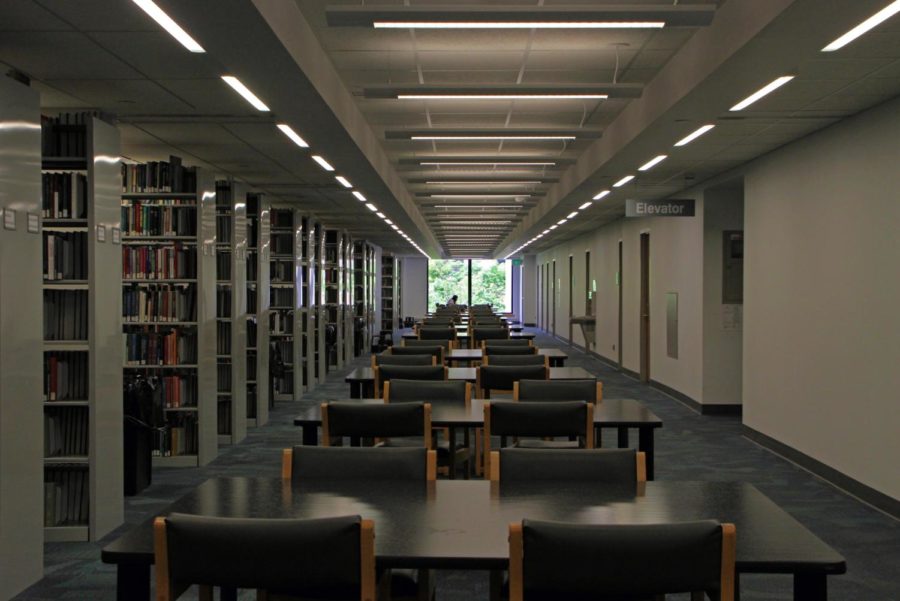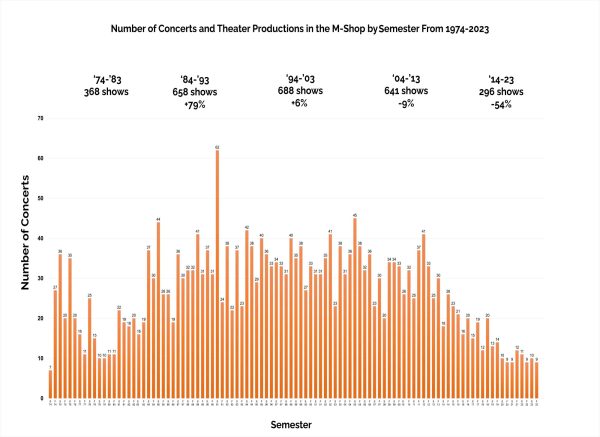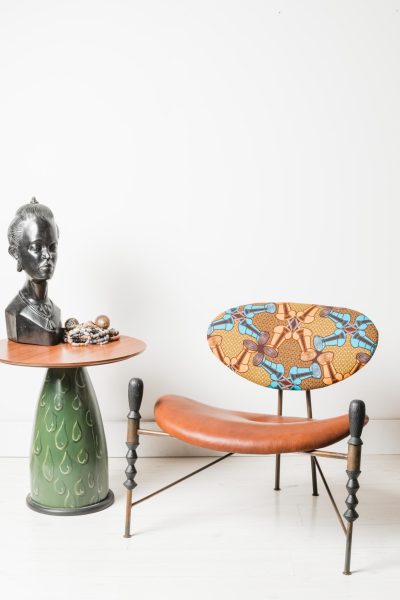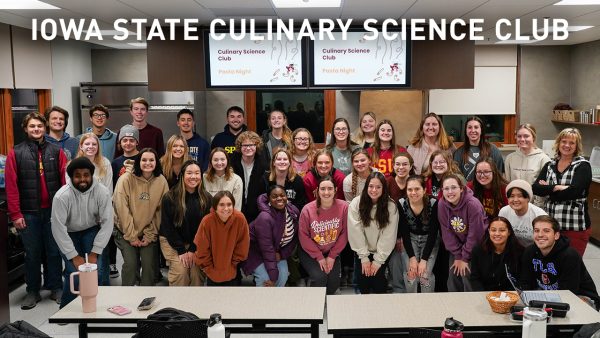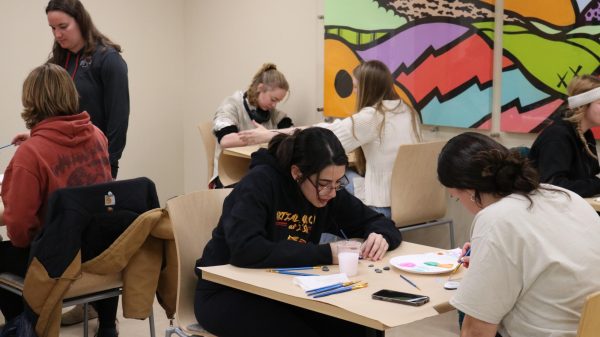ISU Philosophy Club creates a community for curious students
One student studies at the end of a long row of tables on the third floor of Parks Library. Although it’s the first week of summer classes, campus is looking fairly empty as many have gone home and more and more students take their summer classes online.
February 13, 2018
Society, economics, and what it means to be connected to others in meaningful ways- these are the topics that the ISU Philosophy Club touch on when they get together.
The ISU Philosophy Club is an outlet for curious students to focus in on important and relevant topics and share their thoughts and ideas with other members in a casual, conversational setting.
For club president Graham Bacon, this kind of mindful connection over prominent societal themes is an important aspect of his goals for the club. To him, asking these questions is the most important part of a philosophical education.
At one of their meetings at Stomping Grounds, the club was joined by assistant professor and club advisor Ranpal Dosanjh, who led the day’s discussion over a hot cup of herbal tea. His primary research focus is metaphysics, which, although often difficult to pin down in philosophical study, is essentially the study of the nature of reality.
Visibly enthusiastic and a knowledgable across both academics and pop culture, he implores the students to develop their own ideas on any given subject by evoking questions that challenge their assumptions.
On this occasion, Dosanjh led the club members in a discussion about the value of both money and goods and social capital, like friendships and business relationships, drawing parallels between how the two are distributed.
As Dosanjh illustrated his argument, students were encouraged to address their own thoughts, issues or examples relating to the topic, leading the conversation to new areas beyond what it had initially consisted of.
Every idea is examined from as many angles as there are students at the table. This kind of process is what Bacon hopes to encourage within the club attendees; an earnest dialogue aiming to tackle serious issues with open minds fueled by diverse life experiences.
A senior in philosophy, attentive and mindful, Bacon comes across as someone who has put some thought into the words he is saying. Although his words are carefully considered as he provokes club discussion, he didn’t always have such a confident demeanor.
Coming into Iowa State as a materials engineering major, he took his first philosophy course in his sophomore year. After being exposed to the goals of philosophy, he began to see parallels between engineering and philosophical studies. Both aim to closely examine a situation in order to find a solution to a problem, and use their findings to better the experiences of humanity in some way.
Bacon found that philosophy gave him the means to solve much more wide ranging humanitarian problems than engineering, and he plans to take this discipline to law school, where he aims to become a legal aid for disadvantaged people who are underrepresented in the legal world. When he took over the role of president after the previous president graduated, he was unsure of his ability to provide the right environment for fostering fruitful conversations in the discussions.
However, as he prepares to graduate, he says that his responsibilities in the club have been a major source of development for him as a student and as a philosopher. Before he graduates, he hopes to put into motion some important projects and leave the students in the philosophy department and beyond with opportunities to engage in discussions outside of their lectures, bringing peers together to develop their ideas and build close relationships, something he says is lacking in society today.
“I want there to be a place that people can go and earnestly and substantially engage with the material, with some element of the philosophical landscape.” said Bacon. “The last thing I want to do is have somewhere where people come in and I lecture at them; that’s class.”
Bacon also stresses that him and the other club leaders are not a final authority, despite doing research on the topic before every meeting. The club’s goal is for all students to come in and provide their input on an issue, so that everyone can walk away with a new perspective and a better understanding on the week’s topic.
Surprisingly, the majority of regular attendees are not philosophy majors, but an assortment of students from around campus who have questions about the ways of the world. Club discussions always begin with a predetermined topic and some serious and challenging implications of the theme that require further examination, question such as, “what is rationality?”, “what makes something a piece of art?”, or “what is the role of education?”
While conversation begins with an examination of the central question, Bacon says it almost never stays squarely in one domain; by the end of the conversation, which often still has people choosing to stay in attendance after two or three hours, there is a completely new focus that was somehow evoked from the original conversation. The dialogue follows the ideas of the attendees in surprising twists and turns that leave members with new ideas to consider.
Bacon sees this as one of the many benefits of engaging in deep conversation with others. He calls on all students to think about what they want to accomplish in their education; although a common belief is that a college education is meant to prepare you for a specific job, Bacon sees this as a sad and cynical way to think about the opportunities of education.
“We still do have this really good idea that what college is for is to teach you to think, and to let you come away from your academic experience better equipped to deal with whatever the problems are in the world.” he said. “That is the heart of philosophy; it’s the study of the great thinkers and the great ideas in the context of the hardest subjects.”
He holds that philosophical experience can help people to become more aware, more rational, and less prejudiced by examining their own closely held beliefs and those of the people around them.
“There’s only one degree that really is entirely based on looking at, ‘well how do I think in general?’” he claimed.
Throughout his time as an Iowa State student, Bacon says his idea of what philosophy really is has changed in the sense that he now sees its focus in a different light. His new belief on the value of philosophy is that it can be focused away from a study of the way things currently are in the world, or how we wish things were in an ideal world, and toward a study of the best possible way the world could be if we put our minds toward finding solutions to its problems.

